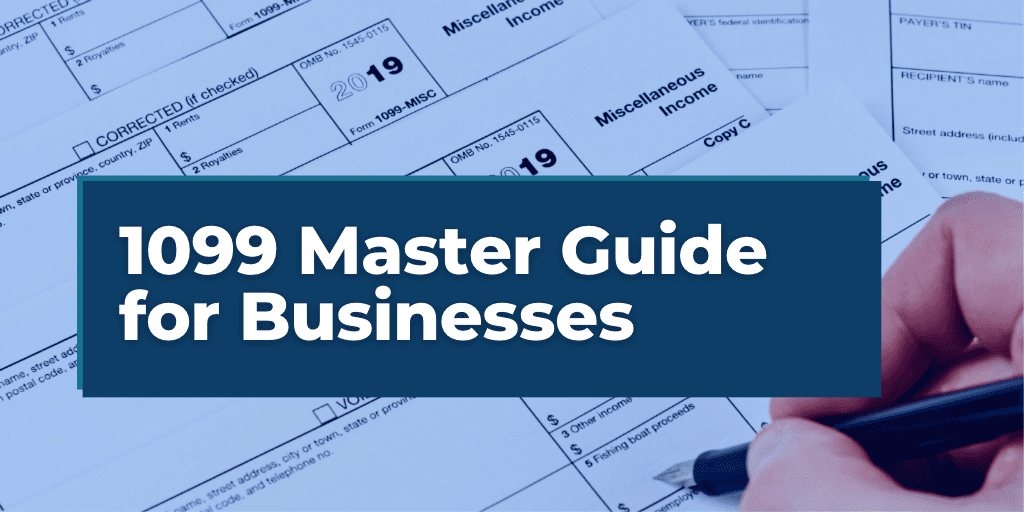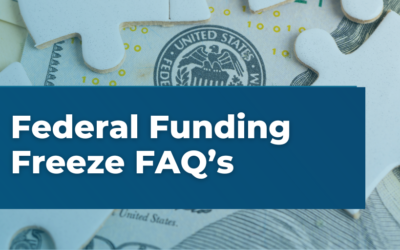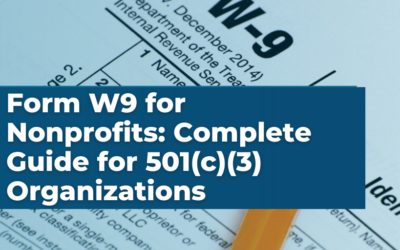As a business owner or accountant for a business, understanding the intricacies of tax reporting and compliance is crucial. One area that requires special attention is the 1099 form. Whether you hire an independent contractor to help with bookkeeping or work as a self-employed professional, mastering the 1099 form is essential for accurate income documentation and fulfilling your tax obligations. In this blog post, we will delve into the various types of 1099 forms, how to fill them out accurately, common mistakes to avoid, tips for organization and management, the penalties for non-compliance, and valuable tools and resources to help you navigate the complexities of 1099 forms.
Why is understanding 1099 forms important for business owners and accountants?
The 1099 form serves as a critical tool for reporting income paid to independent contractors or freelancers. By understanding the purpose and significance of the 1099 form, you can ensure compliance with IRS regulations and avoid potential penalties. As a business owner, accurate and timely filing of 1099 forms is essential for proper tax reporting and maintaining good relationships with contractors. For accountants, comprehensive knowledge of 1099 forms is crucial for assisting clients in meeting their tax filing requirements and minimizing tax liability.
Benefits of Mastering the 1099 Form
Mastering the 1099 form offers several benefits, including:
- Compliance with IRS regulations: Accurate and timely filing of 1099 forms ensures compliance with tax reporting requirements.
- Reduced risk of penalties: By understanding the rules and avoiding common mistakes, you can minimize the risk of penalties.
- Improved contractor relationships: Accurate and timely reporting of income builds trust and fosters positive relationships with independent contractors.
- Optimized tax deductions: Proper documentation through 1099 forms allow you to claim legitimate business expenses and maximize tax deductions.
Different Types of 1099 Forms and Their Purposes
The IRS provides several variations of the 1099 form, each serving a specific purpose. Understanding the differences among these forms is essential for accurate reporting.
Some common types include:
- Form 1099-MISC: Used to report miscellaneous income such as rents, and is also used to report payments for royalties, crop insurance proceeds, gross proceeds paid to an attorney, medical and health care payments, and others.
- Form 1099-NEC: Specifically designed for reporting non-employee compensation to freelancers and independent contractors, replacing the previous use of Form 1099-MISC for this purpose.
- 1099-K: This form is used by payment processors or third-party networks to report payment transactions made to individuals or businesses.
- Form 1099-DIV: Used to report dividends and distributions received from investments or stock holdings.
- Form 1099-INT: Used to report interest income earned from various sources.
- Form 1099-B: Used to report proceeds from the sale of securities, stocks, or mutual funds.
- 1099-R: This form is used to report distributions from retirement accounts, pensions, or annuities.
Who Needs to File 1099 Forms?
Now that you understand the different types of 1099 forms, you may be wondering who exactly needs to file them. The answer depends on your role and the nature of your business activities. If you are a business owner or an accountant for a business, it is crucial to determine whether you need to file 1099 forms and for whom. Generally, if you have paid $600 or more to a non-employee, you are required to file a corresponding 1099 form. See our helpful decision tree below which provides some additional information.
For business owners, this means keeping accurate records of payments made to independent contractors, freelancers, and other service providers. It is essential to gather necessary information from these individuals, including their legal name, address, and taxpayer identification number (TIN), to complete the 1099 form accurately. This is done by requesting them to complete a Form W-9. Failure to file 1099 forms when required can result in penalties, so it is crucial to understand your filing obligations.
Accountants and CPAs play a vital role in assisting businesses with their 1099 form filing obligations. They ensure that businesses are compliant and that all necessary information is gathered and reported correctly. By understanding the requirements and deadlines associated with 1099 forms, accountants and CPAs can provide valuable guidance to their clients.
If you’re an independent contractor or freelancer, you may receive 1099 forms from clients who have paid you for your services. To gain a deeper understanding of the 1099 form and its implications, explore our blog post Navigating 1099 Forms for Independent Contractors, where we provide valuable guidance and resources for successfully managing 1099 forms.
Exceptions To The General Rule
It’s worth mentioning that there are certain exceptions to the filing requirements. We’ve highlighted some examples below.
- Payments to corporations (including a limited liability company (LLC) that is treated as a C or S corporation). However, certain payments to corporations do need to be included such as:
- Cash payments for the purchase of fish for resale reported in box 11.
- Medical and health care payments reported in box 6.
- Substitute payments in lieu of dividends or tax-exempt interest reported in box 8.
- Gross proceeds paid to an attorney for legal services reported in box 10.
- Payments for merchandise, telegrams, telephone, freight, storage, and similar items.
- Payments of rent to real estate agents or property managers. However, the real estate agent or property manager must use Form 1099-MISC to report the rent paid over to the property owner.
- Wages paid to employees (report on Form W-2).
- Payments to a tax-exempt organization including tax-exempt trusts (IRAs, HSAs, Archer MSAs, Coverdell ESAs, and ABLE (529A) accounts), the United States, a state, the District of Columbia, a U.S. possession or territory, or a foreign government.
How to Fill Out and File 1099 Forms Accurately
Accurate completion of 1099 forms is crucial to ensure compliance with IRS regulations. Here’s a general overview of how to fill out and file 1099 forms accurately:
- Gather the necessary information: Before you begin filling out 1099 forms, make sure you have all the relevant information on hand. This includes the recipient’s name, address, and taxpayer identification number (TIN). Additionally, you will need to have a record of the total amount paid to the recipient during the tax year.
- Determine the appropriate form: Based on the type of income you are reporting, select the appropriate 1099 form. Refer back to the previous section for a brief overview of the different types of 1099 forms and their purposes.
- Fill out the recipient’s information: Start by entering your own information as the payer, including your name, address, and TIN. Then, provide the recipient’s information, including their name, address, and TIN. You should get this information from the Form W-9 you requested from them. Ensure that all the information is accurate and up to date.
- Report the income: Enter the total amount paid to the recipient during the tax year in the appropriate box on the form. Be sure to double-check the accuracy of the amount entered to avoid any discrepancies.
- Submit the form: Once you have completed the form, you will need to distribute copies to the appropriate parties. This includes sending a copy to the recipient and filing a copy with the IRS. Check with the IRS website for filing deadlines.
An in-depth guide on how to complete 1099 in Quickbooks will make your life much easier when it comes to using your existing financial software to prepare the forms for freelancers.
Common Mistakes to Avoid When Dealing with 1099 Forms
Filing 1099 forms can be complex, and it’s crucial to avoid common mistakes that could lead to penalties or IRS scrutiny. Some common errors to avoid include:
- Incorrect recipient information: Ensure that you have the correct recipient information, including their name, address, and taxpayer identification number (TIN). Mistakes in these details can lead to misreporting and potential penalties.
- Missing deadlines: The IRS imposes strict deadlines for filing 1099 forms. Failure to meet these deadlines can result in penalties. Make sure to mark the deadlines on your calendar and allow ample time to gather the necessary information and complete the forms. Check out the IRS website for filing deadlines each year.
- Reporting incorrect amounts: Double-check all amounts entered on the forms to ensure accuracy. Reporting incorrect amounts can lead to discrepancies and potential audits.
- Using outdated forms: The IRS updates the format and requirements for 1099 forms periodically. Make sure you are using the most recent version of the form to avoid any issues. You can search & find the most updated forms on the IRS website here.
- Not keeping proper records: It’s essential to maintain accurate records of all 1099 forms filed and copies distributed. This includes retaining copies of the forms for at least three years and keeping track of the dates they were sent to the recipients.
By being aware of these common mistakes and taking steps to avoid them, you can ensure smooth and accurate handling of 1099 form.
Tips for Organizing and Managing 1099 Forms
Effectively organizing and managing 1099 forms can save you time and headaches during tax season. Here are some valuable tips to consider:
- Create a process: Establish a process for organizing and storing Forms W-9 & 1099 forms. This can be a physical filing system or a digital folder structure on your computer. Ensure that it is easily accessible and well-organized. Pro tip: collect your Forms W-9 throughout the year prior to paying vendors rather than waiting until year-end.
- Use accounting software: Consider utilizing accounting software that can help you track and manage 1099 forms. These tools often include features that streamline the process of filling out and filing the forms, reducing the risk of errors.
- Stay informed: Keep up to date with any changes or updates to 1099 form regulations. The IRS regularly releases updates and instructions, and being aware of these changes can help you remain compliant and avoid issues.
- Implement a reminder system: Set reminders for important deadlines, such as the deadline for distributing copies to recipients and filing with the IRS. This ensures that you stay on top of your obligations and avoid any penalties.
Understanding the Penalties for Non-Compliance with 1099 Form Regulations
Non-compliance with 1099 form regulations can result in significant penalties and fines. It’s crucial to understand the potential consequences of failing to meet your obligations.
Here are some common penalties associated with non-compliance:
- Late filing: Failing to file 1099 forms by the deadline can result in penalties ranging from $50 to $280 per form, depending on the length of the delay. The penalties increase for intentional disregard of the filing requirement.
- Incorrect information: Providing incorrect or incomplete information on 1099 forms can result in penalties ranging from $50 to $280 per form, depending on the severity of the error.
- Failure to distribute copies: Neglecting to provide copies of 1099 forms to recipients can lead to penalties ranging from $50 to $270 per form, depending on the length of the delay and the intent.
- Failure to file electronically: If you are required to file 1099 forms electronically but fail to do so, you may face penalties ranging from $250 to $1,500 per form, depending on the number of forms and the length of the delay.
It’s important to note that these penalties can add up quickly, especially if you have multiple forms with errors or late filings. By understanding the potential penalties, you can prioritize compliance and avoid unnecessary expenses.
Tools and Resources for Mastering 1099 Forms
To help you navigate the complexities of 1099 forms effectively, here are some valuable tools and resources:
- IRS website: Visit the IRS website for comprehensive information, instructions, and forms related to 1099 filing requirements.
- IRS helpline: Contact the IRS helpline for assistance with specific questions or concerns related to 1099 forms.
- Accounting software: Explore accounting software options that offer built-in features to generate and file 1099 forms electronically. At Velu, we use Quickbooks Online. This can also be accomplished using tax form software such as Tax1099.com.
Importance of Accurate Record-Keeping for Tax Purposes
Accurate record-keeping is essential for tax purposes, especially when dealing with 1099 forms. Maintaining well-organized financial records ensures compliance, simplifies the tax preparation process, and provides the necessary documentation in case of an IRS audit. Effective record-keeping also allows you to maximize tax deductions and make informed financial decisions for your business. Remember, the IRS is going to specifically ask you if you are required to file Forms 1099, and if you did so directly on your income tax return. Prepare yourself to answer ‘Yes’ to this question and rid yourself of another red flag.
Conclusion
Mastering the 1099 form is crucial for business owners, accountants, and CPAs. Understanding the different types of 1099 forms, accurately filling them out, and avoiding common mistakes are vital for tax compliance and avoiding penalties. By implementing effective organization and management strategies, utilizing valuable tools and resources, and maintaining accurate financial records, you can navigate the complexities of 1099 forms with confidence. Remember, seeking assistance from professionals and staying up to date with IRS regulations will help ensure accurate reporting and minimize tax liabilities.
Take the necessary steps to master the 1099 form and contact our firm for a consultation to further enhance your understanding and streamline your tax reporting processes. Reach out to us or schedule a free consultation.





